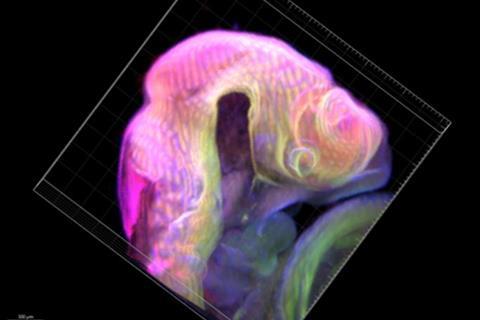Latest research from Duke-NUS Medical School has revealed that foetuses are not as defenceless as once thought; they can actually fight infections from within the womb. This new understanding could significantly change the way doctors protect foetuses from infections that lead to serious health conditions, like microcephaly, where the baby’s head is significantly smaller than expected for its age.

In the study, published in the journal Cell, the researchers discovered that a foetus has a functional immune system that is well-equipped to combat infections in its developing nervous system, long before birth. It had previously been shown that the mother’s immune system was the sole source of protection from infection for a foetus. This breakthrough discovery could potentially benefit women who contract infections during pregnancy. Congenital disorders, including those caused by diseases transmitted from mothers to foetuses during pregnancy, cause approximately 240,000 newborn deaths yearly.
Foetus’ immune system provides defense earlier that thought
Associate Professor Ashley St John from the Programme in Emerging Infectious Diseases at Duke-NUS, the lead author on the study, said “Early in pregnancy, a foetus cannot survive on its own and we have always assumed that it mostly relies on the mother’s immune system for protection against infections. However, we found that the foetus’ own immune system is already able to mount defences against infections much earlier than previously thought.”
READ MORE: Researchers to probe how Zika virus replicates and transmits from mother to fetus
READ MORE: Study reveals best timing for getting the RSV vaccine during pregnancy to protect newborns
Investigating further, the scientists studied the foetal immune response in a preclinical model using Zika virus strains from around the world. They found that immune cells react differently to infection—either taking on a protective role and reducing damage to the foetus’ developing brain or harming the foetus’ brain by causing non-protective inflammation.
The study revealed new insights into the role of microglia, a type of immune cell found in the brain. Using human brain models known as organoids or mini-brains, the researchers confirmed that these cells take on a protective role during an infection and are crucial to the foetal immune system’s defence against pathogens.
Detrimental inflammation in the brain
Monocytes, white blood cells produced in the bone marrow, were another type of immune cell that the researchers studied. The team, which included A*STAR scientists, found that besides being drawn to the foetal brain during an infection, they triggered detrimental inflammation in the brain, killing brain cells instead of eliminating the virus. While it had previously been shown that monocytes’ harmful nature only manifests after birth, this finding showed that these immune cells can also cause damage to a developing foetal brain before birth.
Additionally, monocytes produce highly reactive molecules known as reactive oxygen species that help the body combat pathogens by alerting cells to a pathogen, a state in which they release inflammatory signals. However, the researchers observed an increased release of a particular inflammatory signal, called nitric oxide synthase-2 (NOS2), caused neuron damage when combined with reactive oxygen species in large volumes. Just as bleach can damage the fibres of a piece of clothing when used in excess, so too can immune responses harm a foetus’ brain if they are not properly regulated.
In response to this finding, the scientists used an experimental anti-inflammatory drug to block the function of NOS2. This led to the reduction of non-protective inflammation induced by monocytes in the brain and protected the foetal brain from the damage that Zika infections can cause.
Immune repsonse can be protective or harmful
Assoc Prof St John said that the study brings a fresh perspective to the fight against congenital disorders stemming from infections “Our work has shown that the immune responses of foetuses can be either protective or harmful. Knowing how various immune cells contribute to foetal immune protection will be important in our continued search for ways to improve pregnancy outcomes.”
“We hope that with further testing, we can establish the safety of the anti-inflammatory drug so that it can be developed into a viable form of treatment that protects foetuses from harmful inflammation in their brains,” she added.
Professor Patrick Tan, Senior Vice-Dean for Research at Duke-NUS, commented “Around the world, there are huge efforts underway to map the different cells in our bodies and how they contribute to human health and disease. By revealing the intricacies of our earliest immune responses, this study brings us a step closer to having a more comprehensive understanding of the human body’s inner workings, potentially paving the way for new medical interventions.”
This new research is part of Duke-NUS’ efforts to improve global health by bringing together basic scientific research and translational applications to pioneer novel biomedical solutions.







No comments yet